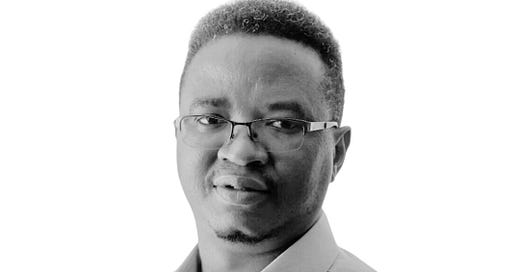Welcome to “Global Witness, Globally Reimagined.” You get a glimpse here of the kind of work that I do both at Church Mission Society and Missio Africanus where I help students of all levels (from unaccredited courses to PhD) explore the theological (and missiological) implications of the rise of World Christianity. In the newsletter, I focus on the subject of global witness in the context of the twenty-first century. Every Thursday, I share a thought that has spoken to me in the week, one or two resources that I trust will be helpful to you, and three exciting quotes about mission to give you something to think about as you go through your day. I pray one of these will energise you.
NB: Please note that I will soon start tailoring most of my content towards paid subscribers. There will still be occasional posts open to everyone, but most will be for paid subscribers. If you appreciate the newsletter and are able to pay for a subscription, please consider doing so.
1. Thought I Can’t Shake Off
It is the end of the 2023-24 academic year here in the UK and these three months that make the third and final term often cause me to reflect on the wider subject of mission education (or studies and training) in general. I get back to this feeling that I was trained and shaped for the ministry in Africa and I was educated for mission in Germany, England, and the United States. And, to a fair extent, my ministry training in Africa and my mission education in the West do not “speak to one another.” They feel incompatible. My ministry training was for contemporary Africa. My mission education was also for an Africa that hardly exists today (or other 20th century non-Western contexts). And yet, I have spent more than 20 years working in the West.
Of course, most African church leaders in the West will understand this. They find their ministry experience is only marginally relevant in the diaspora, even among their own people. Yet, they despise Western mission education because it is still largely colonial, racist, and irrelevant. The books we read, the stories we tell, even the heroes we celebrate are mostly very Western. (A college I know in the UK still has a course called “How to Deal With Animism.”) It is focused on preparing Westerners for service in Africa, Asia, and Latin America. It has very little to say to them about ministry in the diaspora. Even when they gather the courage to attend, they find western mission education to miss the most important aspect of the ministry—spirituality.
So, as we come to the end of the academic year, I wonder how we can take this thing called “mission studies” into the 21st century. How do we make it something that serves the whole body of Christ worldwide? How do we make it relevant in a postcolonial world? Of course, I have experimented with aspects of this with the team at Church Mission Society (CMS) where I lead a Masters programme shaped for people like myself whose training and experience are shaped for a world they left behind and yet they have to serve wherever they are located. So, this month will be dedicated to “decolonising mission education.” As we talk about this, some of you will know people who may be interested in studying with us at CMS. Please, encourage them to get in touch.
2. Resources I am Enjoying
Video: Fuller Studio and Christian Tsekpoe: Grassroots Evangelism in Ghana
With the increasing awareness and conversations around grassroots theologies (and missiologies), this panel discussion explores the theme of evangelism among local communities in Ghana. The four panellists, Christian Tsekpoe, Amos Jimmy Markin, Rebecca Sey, and Daniel Okyere Walker, examine how the Church of Pentecost is deconstructing colonial approaches to evangelism and reconstructing models more appropriate for their local contexts. There is a wealth of missional ideas to glean from these scholars and mission practitioners. Walker is a former vice chancellor of the Pentecost University, Accra. Sey had served as a missionary of the Church of Pentecost both in Ghana and overseas. Amos directs the evangelism ministry of the Church of Pentecost Worldwide while Tsekpoe doubles as the director of postgraduate studies and research and the head of the mission department of the Pentecost University, Accra. I am confident some of you will find this conversation helpful.
3. Quotes I am Pondering
God needs human agents as instruments of his divine mission. It is not that God cannot do without human agents, but because he knows they cannot do without him. — Gerald Emem Umoren
Teaching that pays less attention to faith in God’s grace and mercy disenfranchises the word of God leaving the adherents bereft of its saving mission. — Caroline N. Mbonu
For if colonialism is contrary to Christian values, “colonial mission” is an oxymoron. — Jean Luc Enyegue
I pray that you will be faithful to the mission God has for you this week.



